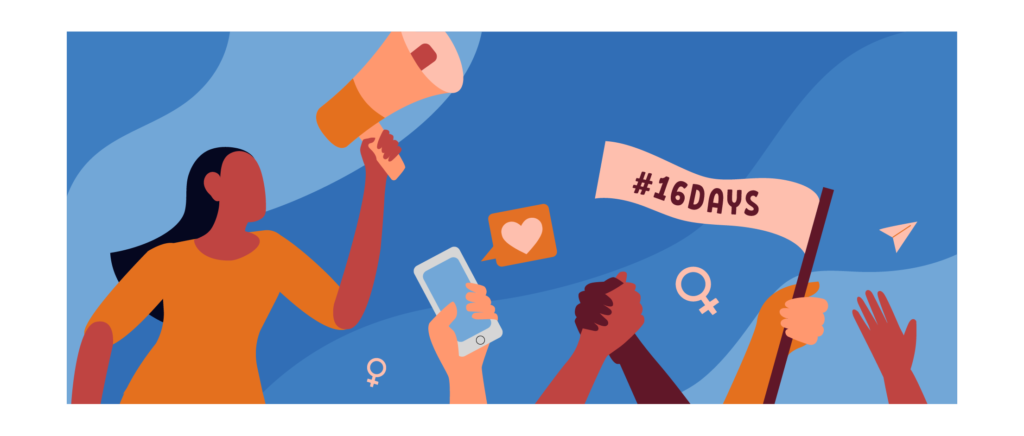In a world striving for equality and justice, gender-based violence remains a pervasive issue affecting millions of individuals, primarily women and girls. The annual “16 Days of Activism Against Gender-Based Violence” serve as a poignant reminder of the urgency to address this global challenge. Running from 25th November to 10th December. This campaign involves communities, organizations and individuals worldwide to stand against all forms of gender-based violence. Unfortunately, the Lesbian, Gay, Bisexual, Transgender and Queer (LGBTQ+) community is not immune to this issue.
The 16 Days of Activism campaign commences on 25th November, designated as the International Day of the Elimination of Violence against Women. This day marks the beginning of a collective effort to combat gender-based violence and concludes on the 10th of December, Human Rights Day. The symbolic choice of these dates underscores the intersectionality of gender-based violence with human rights violations.
The campaign color, orange, represents a brighter, violence-free future. This period serves as a catalyst for diverse activities from public marches to educational workshops, engaging people across cultures and communities. The campaign fosters a sense of solidarity, urging individuals to reflect on the impacts of gender-based violence and take collective action.
At its very core, the 16 Days of Activism is a platform for raising awareness about the multifaceted nature of gender-based violence. Through social media campaigns, educational initiatives, and community events, the campaign aims to dismantle stereotypes, challenge harmful norms and foster a culture of respect. By amplifying survivor’s voices and sharing stories, the campaign sheds light on the pervasive nature of gender-based violence, encouraging open dialogue and destigmatization.
The 16 Days of Activism Against Gender-Based Violence is a truly global movement, transcending borders and cultural boundaries. Governments, NGOs and grassroots organizations collaborate to enact policy changes, improve legal frameworks, and enhance support systems for survivors. The campaign’s impact is seen through local communities, influencing attitudes and fostering a collective commitment to building a safer and more equitable world.
This is not just another campaign; it is a collective call to action. It urges individuals to become active participants in the movement to end gender-based violence, fostering empathy, understanding and advocacy. As we reflect on the significance of these 16 days, let us channel our collective energy into creating a world where everyone can live free from the shackles of gender-based violence, embracing a future defined by equality, respect and justice.
-SC

